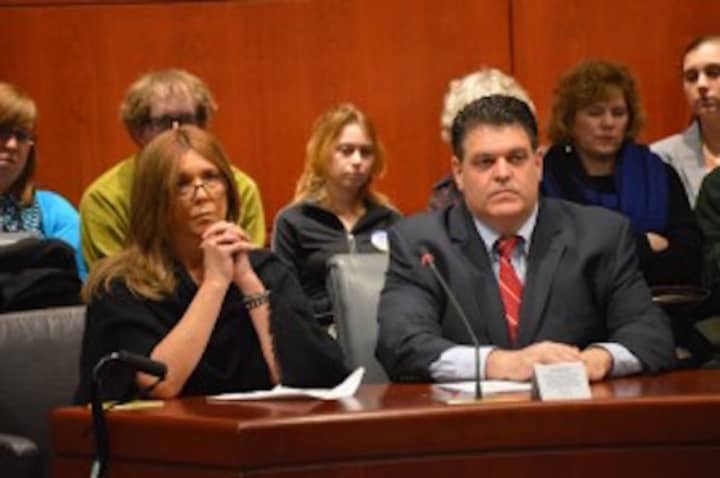Rutigliano represents Trumbull. Devlin represents Trumbull and Fairfield. McGorty represents Stratford, Trumbull and Shelton.
HB 5053, An Act Increasing Access to Overdose Reversal Drugs, passed the House of Representatives by a vote of 144-0 and now moves to the State Senate for final legislative approval.
The three Trumbull representatives sponsored a legislative forum to determine what the state could do through legislation to combat opiate addiction in Connecticut.
“Although this bill alone won’t stop heroin addiction, it does start to limit the availability of opiates especially among our youth,” said Rutigliano.
McGorty said, “This bill is hardly a cure-all, but it takes some very important and positive steps toward the goal of stemming the tide of addiction."
The legislation that was approved has several provisions that will build on the state’s current actions to combat the opioid epidemic, including:
- Requiring municipalities to update their existing emergency medical services plans to ensure that the emergency responder is equipped with and prepared to administer the overdose reversal drug naloxone and has been appropriately trained to do so.
- Closing a gap in current liability language related to a licensed health care professional who administers an opioid antagonist.
- Prohibiting commercial health carriers from requiring prior authorization for coverage of naloxone.
- Requiring the Alcohol and Drug Policy Council’s state plan to include, by January 1, 2017, a goal of reducing the number of opioid-induced deaths in the state.
- Limiting the prescription of opioid drugs by: Prohibiting, for adult patients, an initial prescription of opioid drugs for longer than seven days.
- Prohibiting, for minor patients, any prescriptions of opioid drugs for longer than seven days and requiring the prescriber to discuss the risks associated with the drug with the patient and, if present, the custodial parent, guardian, or other person having legal custody of the patient.
- Allowing, for both adult and minor patients, a prescriber to give more than a seven-day supply of opioid drugs if, in the prescriber’s professional medical judgement, the acute or chronic pain condition requires it and requires the prescriber to note such condition in the medical record.
- Making several changes to the state’s electronic prescription monitoring program to help facilitate prescriber and pharmacist compliance.
Click here to follow Daily Voice Trumbull-Monroe and receive free news updates.


